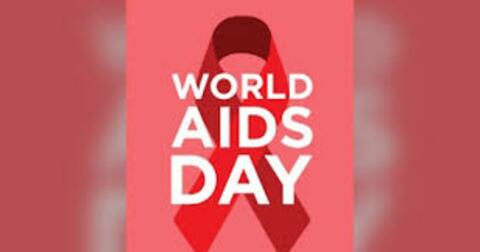December 1st of every year marks World AIDS Day. This international day of unity is observed as a day of remembrance and encouragement as we work towards our goal of ending the HIV and AIDS epidemic. It’s important to recognize how far we’ve come in HIV prevention, care, and treatment. These achievements have improved health outcomes for all — longer, healthier lives for those living with HIV and better HIV prevention options for those who do not have HIV.
We can stop new HIV infections in America and have an HIV-free generation in the near future. We have the right data, tools, and support to end the epidemic, but it cannot be done without the help of every person and every community. Knowing your HIV status gives you powerful information to help you take steps to keep you and your partner healthy. If you are sexually active, you are at risk for getting HIV. Having sex without a condom puts you at risk for HIV, but also other sexually transmitted infections (STIs).
It is not only important to know your HIV status, but also the HIV status of your sexual partner(s). Not knowing puts your health and the health of others at risk. Testing is the only way to know for sure whether you have HIV. In many cases, a person living with HIV may never have symptoms or their symptoms may not appear for years. HIV can be passed to others without the person knowing it.
If diagnosed with HIV, speak to a healthcare professional and start treatment right away. A timely and effective treatment plan is the best way to achieve an undetectable viral load. Maintaining low or undetectable levels of the virus in the blood stops HIV infection from getting worse (progressing to AIDS). It also prevents the spread of HIV to sexual partner(s). HIV is a manageable, chronic condition as long as the person continues treatment throughout their life.
Everyone between the ages of 13 and 65 should get tested for HIV at least once as part of routine healthcare. Not only is HIV testing key to living healthy with HIV, it’s an important link to prevention services for those who do not have HIV. There are proven prevention options available to reduce HIV infection. Those at high risk for HIV infection should get tested often and talk to their healthcare provider about starting PrEP (pre-exposure prophylaxis), also known as Truvada.
If you think you were recently exposed (in the last 72 hours) to HIV, immediately contact your healthcare provider, an emergency room doctor, or an urgent care provider about taking PEP to prevent HIV infection.
Get Tested, Get Treatment, Stay Undetectable, Stop HIV.
New Jersey offers free HIV and other STI services to all state residents via the hotline. Knowing who to call for resources and information is the first step in ending the HIV epidemic in New Jersey. The hotline is staffed by health professionals (doctors, nurses, and pharmacists) available 24 hours a day, 7 days a week to provide free, confidential help: Call: 1-800-624-2377; Text: 973-339-0712, orchat here
- Referrals for testing sites and other related services
- HIV, STI and hepatitis prevention and treatment information
- Side effects from medicines used to treat HIV and other sexually transmitted infections
- Referrals to PrEP (pre-exposure prophylaxis) and PEP (post-exposure prophylaxis) services
- Counseling and treatment locations
- Partner notification
- ADDP (AIDS Drug Distribution Program)
